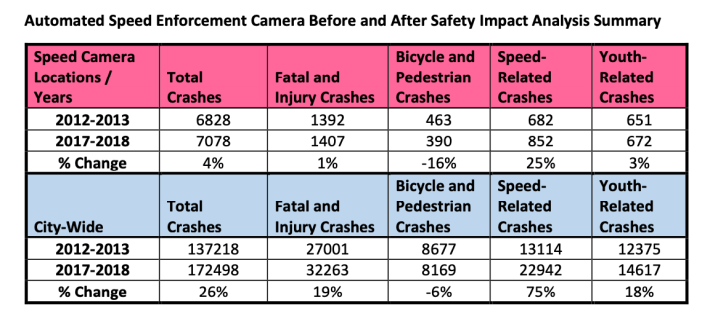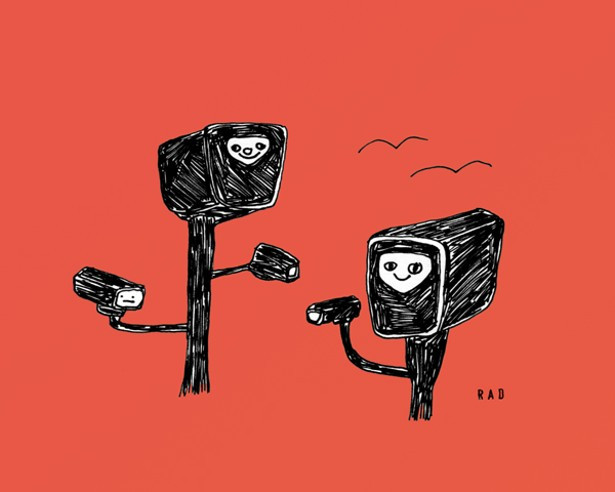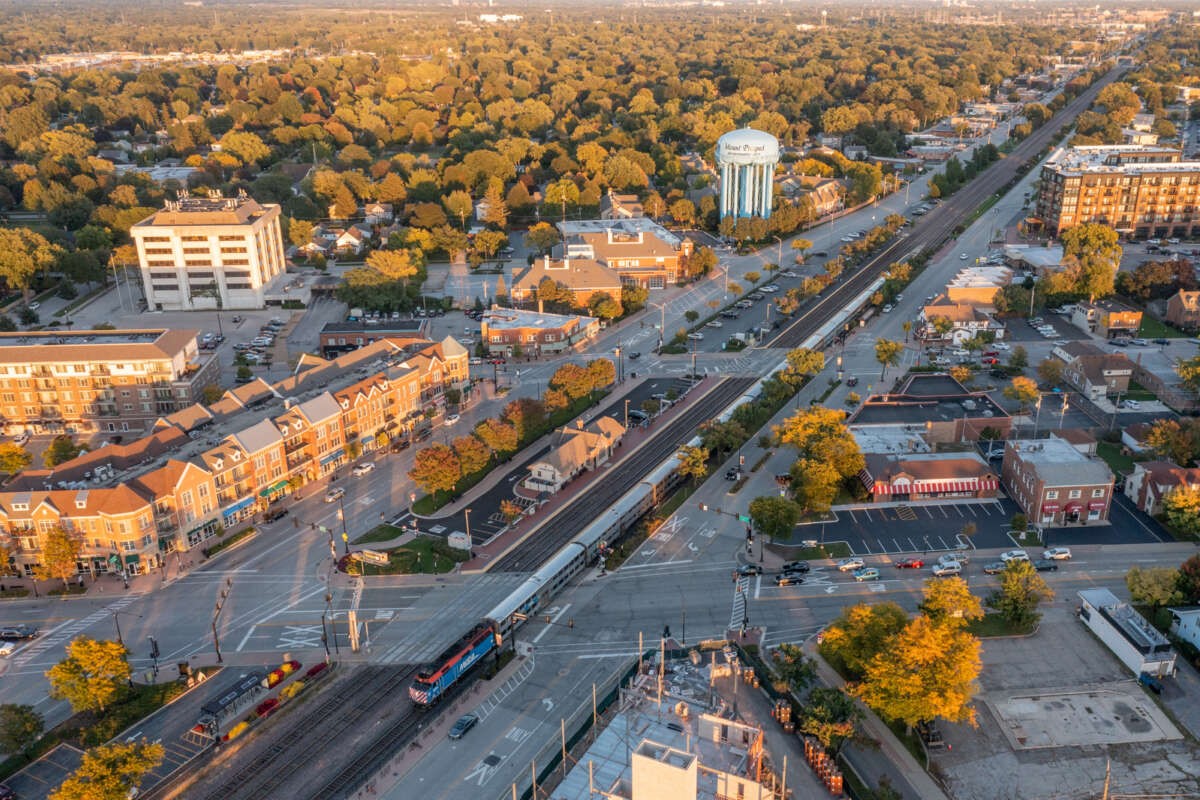The basic problem with the Chicago Tribune's automated enforcement coverage has been too much time spent arguing that speed and red light camera tickets are an unfair imposition on drivers, and too little attention paid to the safety benefits of the cams, and the societal harm caused by traffic violence.
That issue was in evidence in yesterday's Tribune editorial arguing that the 6 mph speed ticketing threshold introduced last March is unjust and needs to be repealed.
In fairness, when Mayor Lori Lightfoot announced her plan to lower the threshold from 10 mph as part of the 2021 budget, Streetsblog Chicago didn't endorse the idea. It was a tough call, but in the thick of the COVID-19 pandemic, when many Chicagoans were suffering economically, it didn't seem like a good time to introduce new fees. We were also concerned that the move would be perceived as a money grab, leading to renewed calls to abolish speed cams altogether, which would be counterproductive to safety.
But now that the lower threshold is in place, it makes sense to see whether it has a significant effect on reducing serious and fatal crashes. That's especially true since Chicago has been experiencing a traffic violence crisis recently. Total on-street Chicago traffic deaths spiked from 96 in 2019, to 139 last year, a 45 percent increase.
There's no mention of the crash fatality epidemic in the Trib editorial. Rather it starts by asking us to spare a thought for Chicago drivers who speed by 6 mph or more, for whom "the thrill of the daily mail drop is now tempered by the high probability" of getting a ticket.
The paper cites the high number of citations issued to speeders in the wake of the threshold change – 322,447 tickets in the first two months – as evidence the new policy is flawed. "If the cameras are snagging that many otherwise upstanding Illinois citizens... something is out of whack." That statement implies that speeding 6-9 mph over Chicago's 30 mph speed limit isn't really problematic, and drivers don't deserve to get penalized for it.
However, studies show that while pedestrians struck at 20 mph almost always survive, and those struck at 30 mph have about an even chance of survival, those struck at 40 mph almost always die. So the difference between obeying Chicago's default speed limit at 30 and ignoring it at 36-39 mph could easily be a matter of life or death.

The editorial makes a valid point that Chicago's $35 speeding fines for speeding by 6-10 mph disproportionately impact working-class Chicagoans compared to more affluent residents. Other cities have addressed that issue with sliding-scale, income-based fines and/or offering diversion programs, such as traffic school, as an alternative to cash payment.
But pretty much absent from the editorial and Tribune news coverage of the ticketing numbers earlier this month is a discussion of the proven safety benefits of our city's speed camera program. According to a Chicago Department of Transportation analysis, speeding violations have dropped by an average of 53 percent near speed cameras within three months of the cams being activated.
While serious or fatal injury crashes spiked by 19 percent increase citywide between 2012-13 and 2017-18, likely because of more driving due to the rise of ride-hail use, that increase was only 1 percent near speed cameras. And while speed-related crashes went up by 75 percent across the city during that time period, the increase at camera locations was only 25 percent.

"If 6 mph over is snagging that many people, common sense should apply," the editorial concludes. "Take the cameras back to 10." That is, if lots of people are illegally driving at potentially deadly speeds, that means it's not fair to ticket them for it.
Interestingly, it was one of the recently ticketed motorists who provided a voice of reason in the Tribune news article earlier this month. Local music producer and guitarist Steve Albini (he produced Nirvana's final album "In Utero") was twice ticketed by cams in April for driving 6 and 9 mph over the speed limit on North Western Avenue.
Albini said he'd like to see measures taken to make the fines less regressive for lower-income residents. But for folks like himself for whom a $35 penalty is not a major hardship, “It seems like a nicely implemented, mild reminder to keep speed under control in those areas,” he told the Tribune's Tracy Swartz. “I don’t fault anybody but me for driving too fast. And I don’t fault anybody but me for not knowing that they had lowered the threshold for the ticketing.”




